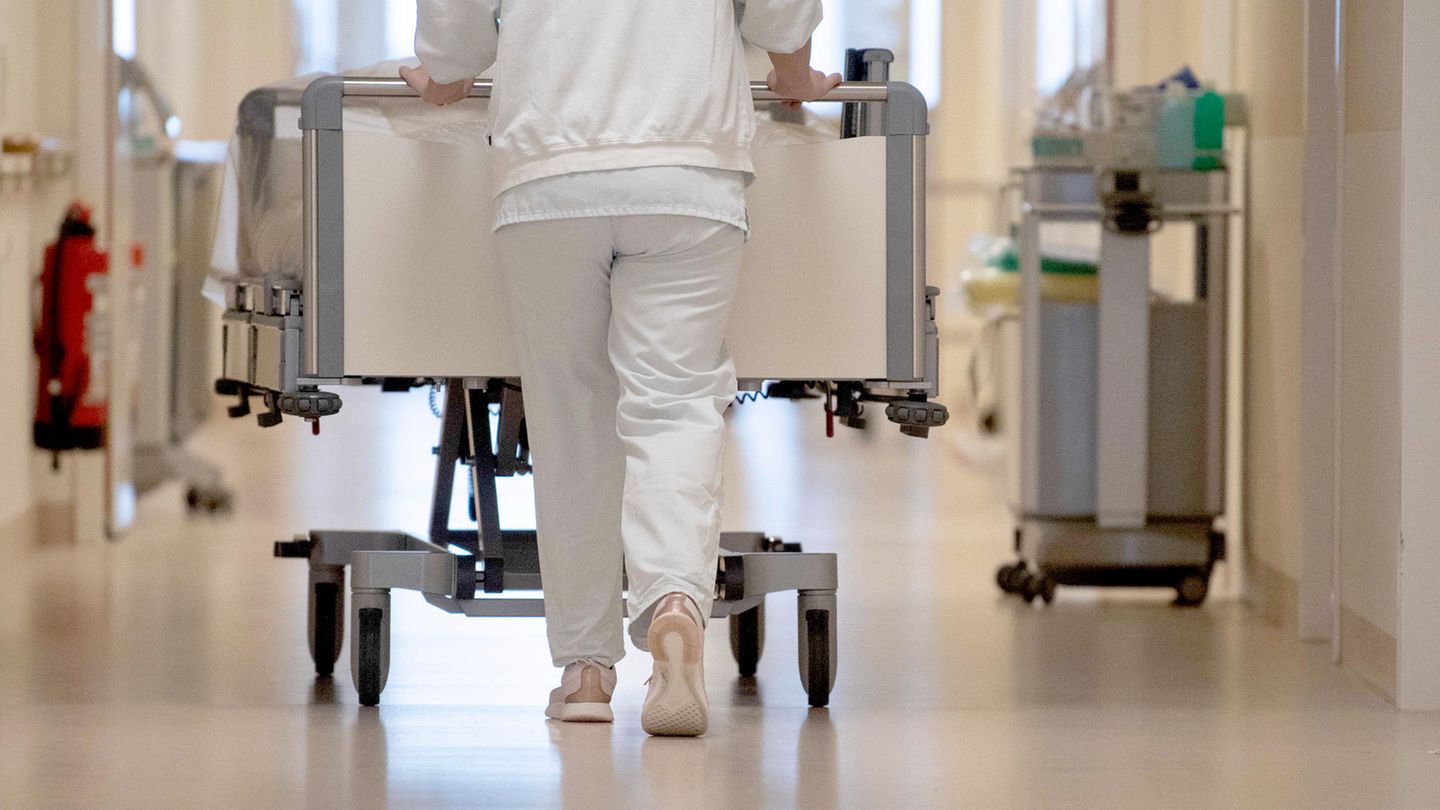Reorganization of the clinics
Federal Council clears the way for hospital reform
Copy the current link
Minister Lauterbach is bringing his hospital reform to the finish line despite the break in the traffic light coalition: after much wrangling, his prestige project is a done deal.
The Federal Council is clearing the way for the controversial hospital reform. The state chamber passed the law passed by the traffic light coalition in the Bundestag for a fundamental reorganization of clinics in Germany. An appeal to the joint mediation committee with the Bundestag did not find the necessary majority. The reform by Health Minister Karl Lauterbach (SPD) can thus be implemented. It is intended to reduce financial pressure on the clinics and achieve more specialization.
New compensation system planned
Essentially, the current remuneration with flat rates for treatment cases is to be changed. In the future, clinics should receive 60 percent of the remuneration simply for providing certain offers. This is intended to eliminate incentives for more and more cases and sometimes medically suboptimal interventions.
The basis for financing by the health insurance companies should therefore also be new “service groups”. They are intended to describe clinic treatments in more detail and ensure uniform nationwide quality standards – for example in terms of specialist staff or treatment experience. A “transformation fund” worth billions will also be introduced to provide financial support for the reorganization.
There was a controversial debate at the meeting of the state chamber. Shortly before the vote, Lauterbach appealed to the states to let the law pass. It’s about “the unique opportunity to provide better care to tens of thousands of people every year.” When it comes to possible changes, you have to be honest: this is about the core of the reform. If these changes were made, the reform would no longer be needed.
Thuringia’s vote was not counted in the vote because the state did not vote uniformly, as Federal Council President Anke Rehlinger noted.
Several countries expressed criticism
North Rhine-Westphalia’s Health Minister Karl-Josef Laumann (CDU) said: “We need this reform, but there are still a few points that absolutely need to be improved.” Otherwise the law would lead to disruption in the hospital landscape. Specifically, it is about changes to the requirements for specialists who are currently simply not available in rural regions. What is needed is “more legroom” for the states when it comes to implementation.
Bavaria had submitted the request to appeal to the mediation committee. Department head Judith Gerlach (CSU) said: “Our goal is to make urgently needed improvements, at least in central points of the law.” She also pointed out the acute financial difficulties at many clinics. “The federal government should have presented an emergency aid program long ago.”
Saxony-Anhalt’s Prime Minister Reiner Haseloff (CDU) warned that existing supply inequalities between East and West should not be exacerbated. For Baden-Württemberg, the federal representative, Rudi Hoogvliet (Greens), complained that it was still not possible to seriously assess the consequences of the reform. A mediation committee should neither delay nor prevent the project. The chairwoman of the state health ministers, Kerstin von der Decken (CDU) from Schleswig-Holstein, said this probably offered the last chance to correct gross errors.
Hospital reform should take effect in several years
Rhineland-Palatinate Minister Clemens Hoch (SPD), on the other hand, called for support for the reform and warned not to carelessly jeopardize the result of a two-year work process. Short-term financial effects of the law would also be needed. The Lower Saxony minister Andreas Philippi (SPD) warned that if the reform was pushed into the mediation committee, then it would be “politically dead”.
The law is scheduled to come into force on January 1, 2025. However, the new structure will only be implemented over several years until 2029. This means that patients will not immediately notice it. The network of 1,700 hospitals is likely to become smaller. Many hospitals have long been struggling with financial difficulties, unoccupied beds and a lack of staff. The states and the hospital industry had also called for bridging financing for hospitals until the reform took effect.
Note: This article has been updated since it was first published.
DPA
km / by Sascha Meyer, Carla Benkö and Andreas Hoenig
Source: Stern
I have been working in the news industry for over 6 years, first as a reporter and now as an editor. I have covered politics extensively, and my work has appeared in major newspapers and online news outlets around the world. In addition to my writing, I also contribute regularly to 24 Hours World.





